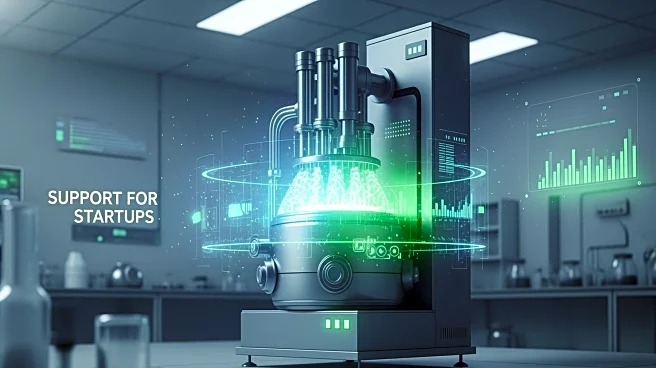What's Happening?
Symbiotec, an India-based manufacturer of Active Pharmaceutical Ingredients, is expanding its biomanufacturing capacity to support startups in the fields of biomaterials, nutraceuticals, specialty chemicals,
and alternative proteins. The company has introduced four new 100,000-liter fermenters at its facility in Ujjaiin, Madhya Pradesh, with extensive downstream processing capabilities. This expansion aims to help startups overcome the 'valley of death' in scaling up biomanufacturing, offering cost-effective solutions compared to US and European benchmarks. Symbiotec's facility is powered by renewables, and the company is open to co-investment opportunities to further increase capacity.
Why It's Important?
The expansion of Symbiotec's biomanufacturing capacity is significant for startups in the alternative protein and nutraceutical sectors, providing them with a cost-effective solution to scale their operations. This development could accelerate innovation and production in these industries, which are crucial for sustainable food and health solutions. By offering lower capital expenditure compared to Western benchmarks, Symbiotec is positioning itself as a key player in the global biomanufacturing landscape, potentially attracting more international collaborations and investments.
What's Next?
Symbiotec plans to continue expanding its capacity through co-investment, allowing for rapid scaling of production facilities. This could lead to increased partnerships with companies in the biomaterials and specialty chemicals sectors. The company's strategic location in India, combined with its renewable energy-powered operations, may attract more startups looking for sustainable and cost-effective manufacturing solutions. The impact of recently imposed tariffs on goods from India to the US remains uncertain, but Symbiotec's competitive pricing could mitigate these challenges.
Beyond the Headlines
Symbiotec's approach to biomanufacturing highlights a shift towards more sustainable and efficient production methods in the pharmaceutical and food industries. By leveraging its experience in fermentation science, the company is bridging the gap between traditional food and pharma manufacturing, offering a unique value proposition to startups. This development could influence global biomanufacturing practices, encouraging more companies to adopt similar strategies for cost-effective and environmentally friendly production.










